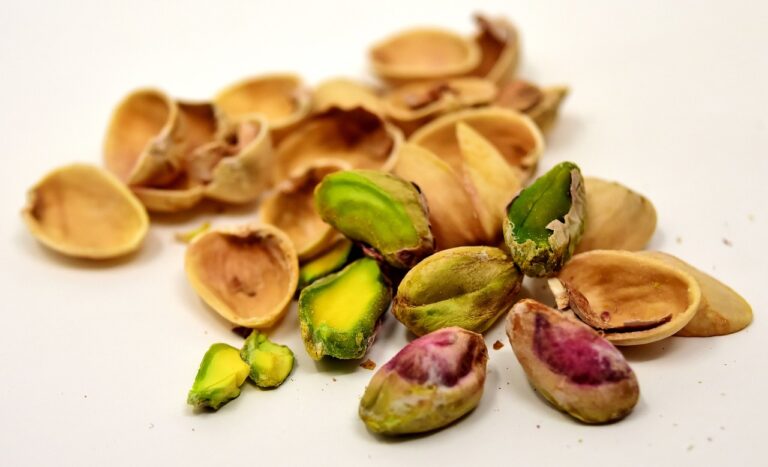Sustainable Sourcing Practices in the Juice Industry: 11xplay reddy, Laser 247 betting, Skylivecasino
11xplay reddy, laser 247 betting, skylivecasino: Sustainable Sourcing Practices in the Juice Industry
In recent years, there has been an increasing focus on sustainability within the food and beverage industry. Consumers are becoming more conscious of where their products come from and how they are produced. This shift in consumer behavior has prompted many companies in the juice industry to reevaluate their sourcing practices and implement more sustainable solutions.
Sustainable sourcing practices in the juice industry encompass a wide range of initiatives aimed at minimizing the environmental impact of production processes, supporting local communities, and ensuring ethical treatment of workers. From sourcing organic ingredients to reducing packaging waste, there are many ways that juice companies can contribute to a more sustainable future.
In this article, we will explore some of the key sustainable sourcing practices in the juice industry and highlight the benefits of implementing these initiatives. From sourcing organic ingredients to reducing packaging waste, there are many ways that juice companies can contribute to a more sustainable future.
Sourcing Organic Ingredients
One of the most common sustainable sourcing practices in the juice industry is sourcing organic ingredients. Organic farming practices prioritize soil health, biodiversity, and the use of natural fertilizers and pesticides. By sourcing organic ingredients, juice companies can reduce their reliance on harmful chemicals and support environmentally friendly farming practices.
Many consumers are willing to pay a premium for organic products, making it a valuable selling point for juice companies. By sourcing organic ingredients, companies can appeal to a growing segment of environmentally conscious consumers and differentiate themselves from competitors who rely on conventional farming methods.
Supporting Local Farmers
Another important aspect of sustainable sourcing in the juice industry is supporting local farmers. By sourcing ingredients from local farmers, juice companies can reduce their carbon footprint and support local economies. Local sourcing also helps to ensure the freshness and quality of ingredients, as they do not have to travel long distances to reach the production facility.
Supporting local farmers can also help to build strong relationships within the community and create a sense of trust and transparency with consumers. By highlighting the stories of local farmers and the benefits of sourcing locally, juice companies can strengthen their brand image and foster a sense of loyalty among customers.
Reducing Packaging Waste
Packaging waste is a significant issue in the food and beverage industry, and juice companies are no exception. To reduce the environmental impact of packaging waste, many juice companies are implementing sustainable packaging solutions such as biodegradable bottles, reusable containers, and compostable packaging materials.
By reducing packaging waste, juice companies can minimize their contribution to landfills and marine pollution. Sustainable packaging solutions also appeal to environmentally conscious consumers who are looking for products that are eco-friendly and socially responsible. By prioritizing sustainable packaging practices, juice companies can demonstrate their commitment to environmental stewardship and attract a loyal customer base.
Promoting Fair Trade Practices
Fair trade practices are another important aspect of sustainable sourcing in the juice industry. By working with fair trade certified suppliers, juice companies can ensure that farmers and workers are paid fair wages, have safe working conditions, and are treated with respect and dignity. Fair trade certification also helps to prevent exploitation and promote economic empowerment in developing countries.
Consumers are increasingly concerned about ethical sourcing practices and are more likely to support companies that prioritize fair trade initiatives. By promoting fair trade practices, juice companies can build trust with consumers and differentiate themselves from competitors who do not prioritize ethical sourcing. Fair trade certification can also help juice companies attract new customers and expand into new markets.
Investing in Sustainable Agriculture
Many juice companies are investing in sustainable agriculture initiatives to support environmental conservation and promote regenerative farming practices. Sustainable agriculture focuses on maintaining soil health, conserving water resources, and reducing the use of synthetic fertilizers and pesticides. By investing in sustainable agriculture, juice companies can support biodiversity, protect natural ecosystems, and reduce their overall environmental impact.
Some juice companies are partnering with agricultural organizations and non-profit groups to implement sustainable farming practices and support conservation efforts. By investing in sustainable agriculture, juice companies can demonstrate their commitment to environmental sustainability and make a positive impact on the planet. Sustainable agriculture initiatives can also help juice companies build strong relationships with suppliers, promote transparency in the supply chain, and enhance brand credibility among consumers.
Embracing Transparency and Traceability
Transparency and traceability are key principles of sustainable sourcing in the juice industry. By providing clear information about the origin of ingredients, production processes, and supply chain practices, juice companies can build trust with consumers and demonstrate their commitment to ethical sourcing. Traceability also helps to ensure the quality and safety of products and provides assurance that ingredients are sourced responsibly.
Many juice companies are implementing traceability systems that track the journey of ingredients from farm to bottle. By embracing transparency and traceability, juice companies can reassure consumers that their products are produced with integrity and align with their values. Transparent sourcing practices also help juice companies identify opportunities for improvement, address supply chain risks, and enhance operational efficiency.
Benefits of Sustainable Sourcing Practices
There are many benefits to implementing sustainable sourcing practices in the juice industry. By prioritizing sustainability, juice companies can:
– Enhance brand reputation and credibility
– Attract environmentally conscious consumers
– Differentiate themselves from competitors
– Strengthen relationships with suppliers and local communities
– Reduce environmental impact and promote conservation efforts
– Improve product quality and safety
– Increase operational efficiency and cost savings
By investing in sustainable sourcing practices, juice companies can create a positive impact on the environment, society, and economy. Sustainable sourcing not only benefits the bottom line but also contributes to a more sustainable future for the planet.
FAQs
Q: How can consumers support sustainable sourcing practices in the juice industry?
A: Consumers can support sustainable sourcing practices in the juice industry by choosing products that are certified organic, fair trade, and sustainably sourced. By purchasing products from companies that prioritize sustainability, consumers can vote with their wallets and encourage more companies to adopt environmentally friendly practices.
Q: Are sustainable sourcing practices more expensive for juice companies?
A: While implementing sustainable sourcing practices may require upfront investment, the long-term benefits often outweigh the costs. By reducing waste, increasing efficiency, and building brand loyalty, sustainable sourcing practices can ultimately lead to cost savings and improved profitability for juice companies.
Q: What role can government regulations play in promoting sustainable sourcing practices in the juice industry?
A: Government regulations can play a critical role in incentivizing and enforcing sustainable sourcing practices in the juice industry. By implementing policies that support sustainable agriculture, protect natural resources, and promote fair trade, governments can create a level playing field for companies that prioritize sustainability.
In conclusion, sustainable sourcing practices are essential for the long-term success and viability of the juice industry. By prioritizing sustainability, juice companies can build strong relationships with consumers, suppliers, and local communities, while also making a positive impact on the environment. Embracing sustainable sourcing practices is not only a smart business decision but also a moral imperative in today’s increasingly conscious consumer market.







